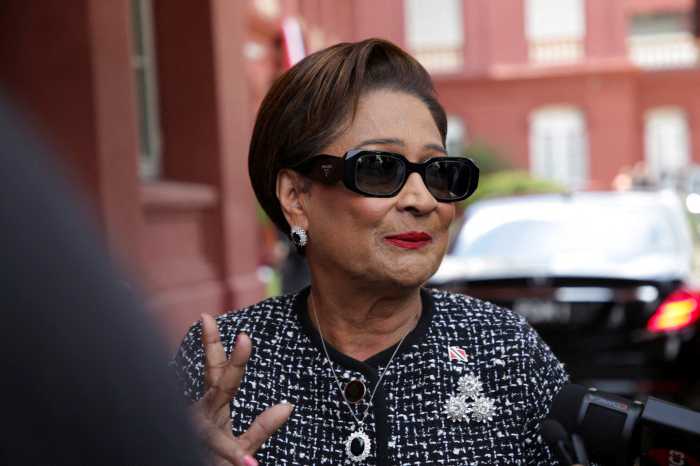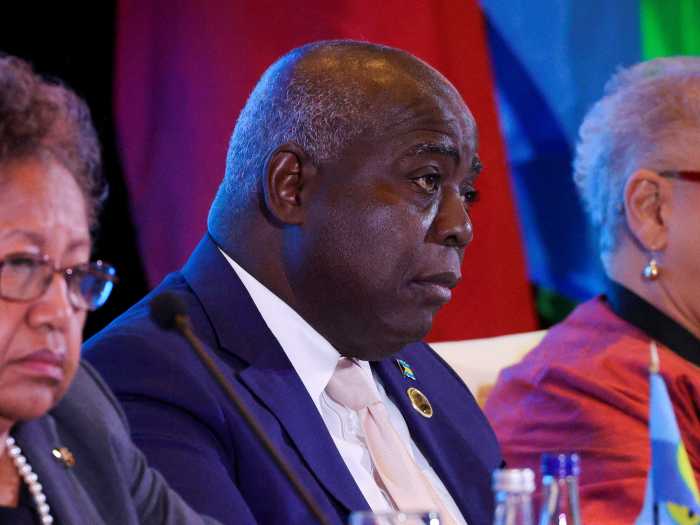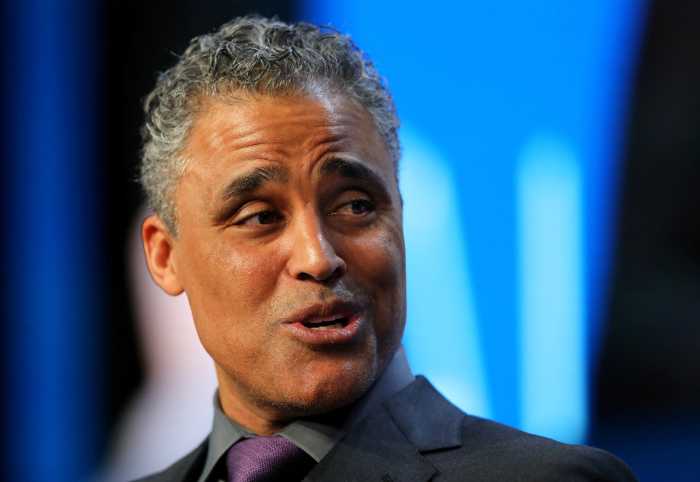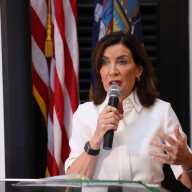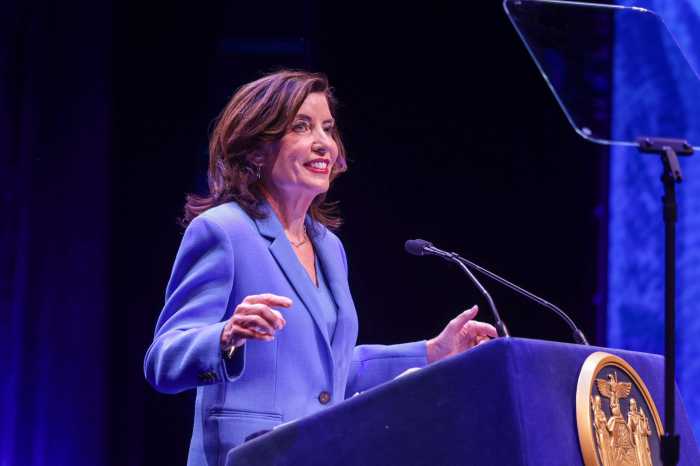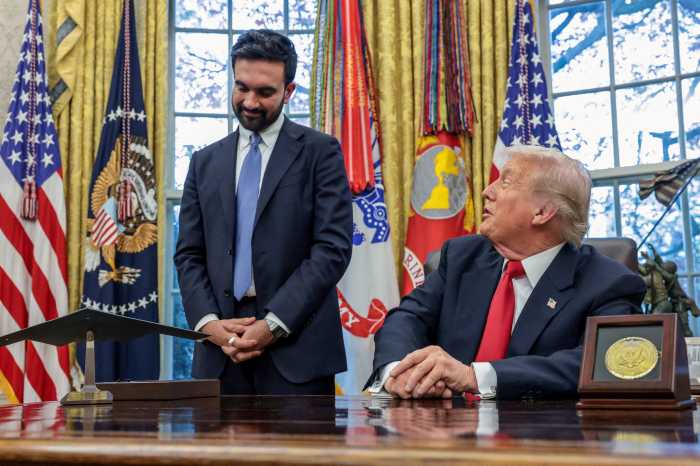Bahamas
Bahamas police have launched a manhunt for the killers of a British national last weekend.
Police said the man, whose name was not given, was at his home, when two men armed with handguns accosted him and demanded cash.
“The men fired two shots hitting the victim before fleeing on foot. The victim was pronounced dead at the scene. Police are searching for four men in connection with this incident,” the police said in a statement.
Meanwhile, investigators acting on a tip-off said they went to a cruise ship moored at Prince George Wharf, where they detained a 26-year-old American after he was found in possession of a quantity of marijuana.
The suspect was taken into custody and appeared in court.
Cayman Islands
Police in the Cayman Islands say they are trying to find out who installed a secret video camera in the office of a senior manager at the troubled prison on the British Caribbean territory’s main island.
The Royal Cayman Islands Police Service said a correctional officer at HMP Northward prison on Grand Cayman Island has been suspended pending further investigations.
They say investigators found the camera “covertly recording” in the manager’s office. The motive was unclear.
Prison Director Neil Lavis says he is “committed to uncovering the parties involved” in installing the camera.
The names of the manager and the suspended officer were not disclosed by police.
In 2013, British inspectors found that conditions at Northward prison were decrepit and “meaningful accountability almost non-existent.”
Grenada
Grenada has reached an agreement with its creditors to restructure US$262 million it defaulted on in 2013.
Bondholders have agreed in principle to a 50 percent cut in the bond’s original value. In exchange, Grenada’s government will issue new bonds due in 2030 to existing bondholders carrying an annual coupon of seven percent.
It will also share with bondholders a portion of revenues generated by its Citizenship by Investment Program.
The deal ends a lengthy negotiation between the government and its creditors, including Franklin Templeton and Acadian Asset Management.
Despite Grenada’s small size, the agreement is being closely watched by international investors, as Greece and Ukraine are striving to sort out their debt problems with creditors.
The agreement could provide a road map for other countries.
The deal is likely to provide the island with a significant reprieve. The country still has a US$907 million public-sector debt.
Guyana
Guyana Health Minister Bheri Ramsarran has been fired after verbally abusing a social rights activist and threatening to have government supporters strip her naked.
President Donald Ramotar said in a statement recently that he was outraged by the minister’s verbal outburst and insults.
Some government officials and activists had been calling for Ramsarran’s resignation.
Ramsarran apologized for his actions that were caught on video and posted on social media following an April 20 election campaign rally.
He said he lost his temper when activist Sherlina Nageer repeatedly interrupted as reporters were interviewing him.
Ramotar himself was caught at the end of last year telling a man he was “stupid” and deserved a slap after he made comments about former President Bharath Jagdeo.
Haiti
Haitian officials have reported a spike in cholera cases late last year and into the first three months of 2015 as an early rainy season has public health workers worried.
As of March 28, the Haitian Ministry of Health confirmed 11,721 cases of cholera, more than a 300 per cent increase from the same period last year.
Haiti has seen two rainy seasons that tend to generate spikes in cholera: April to June and another from late August to November.
In March, the UN mission to Haiti requested US$36.5 million for cholera programs for the next two years. The figure is based on assumption that only 28,000 people will be infected this year, a fraction of the peak of the epidemic in 2011 when more than 350,000 were infected.
There had been no record of cholera in Haiti before the 2010 outbreak, believe to have been caused by human waste from a Nepalese-staffed UN base seeping into a river used for bathing, laundry and drinking.
Jamaica
Jamaica’s most prominent human rights organization has closed its legal department and lay off staff after losing its long-standing status as a charity, leader of the group said.
Barry Wade, chairman of Jamaicans for Justice, said the government rejected the watchdog’s application to renew its charity status, forcing it to dramatically cut its operations and turn down certain grants from international donors.
It now also faces some US$100,000 in back taxes.
Wade said the denial came due to concerns about the group’s advocacy for legislative change, a reason he said is “puzzling.”
He also asserts the decision is “contrary to international norms.”
Over the years, police officials have portrayed Jamaicans for Justice as being sympathetic to criminals and some politicians have accused it of trying to make the island look bad. But the group is widely respected among many.
In 2008, one of its founders received the United Nations Prize in the Field of Human Rights for her work against police slayings.
Last year, the organization’s reputation took a hit in Jamaica when it introduced a sex education program for children’s group homes that it acknowledged was not properly vetted.
In a statement, Jamaicans for Justice said a new board elected recently will focus on getting the group’s charitable status back and hopefully reach a settlement with the government regarding back taxes.
St. Lucia
The Caribbean Association of Banks (CAB) says it fully supports the view of Prime Minister of Antigua and Barbuda Gaston Browne that there is a very real and grave threat to the Caribbean banking industry.
In his remarks at the meeting of CARICOM heads and United States President Barack Obama in Jamaica last month, Browne said there had been an unfair and unsubstantiated labeling of the region as a high-risk area for financial services by some U.S. organizations. As a result there is a threat of loss of correspondent banking relationships to banks in the region.
CAB said in a statement: “Correspondent banks use the risk rating of countries, in assessing the risk profile of banks, to determine whether to continue existing or establish new relationships. The present trend is that some correspondent banks have discontinued some of the services provided to regional banks and are also not establishing new relationships particularly with small size financial institutions.”
The association said correspondent banking relationships are critical in enabling key economic and financial transactions, such as, remittances, foreign direct investments and international trade in goods and services, key drivers for sustaining the region’s growth and development. It warned that the loss of these vital relationships can render the Caribbean unbankable and ultimately destabilize all sectors of economies in the region.
“The CAB considers this use to be a threat to national security for the various islands in the region,” the group said.
St. Vincent
The Islamic State (IS), an Islamic rebel group claiming religious, political and military authority over all Muslims worldwide, has hacked the official website of the St. Vincent and the Grenadines government (www.gov.vc), a message appearing on the website recently suggested.
Visitors to the website were greeted by a message saying “Hacked By Moroccanwolf – Islamic State” and a photo of a man firing a high caliber machine gun from the back of a pick-up truck.
“They overthrow governments of sovereign nations and they undermine, threaten, refuse to recognize and seek to destroy democratically elected governments like there are in Syria, Iraq, Gaza, Palestine,” the message said.
“They support dictators as long as they are fulfilling U.S., EU and NATO interest in the region like they did in Pakistan and Saudi Arabia. You speak of freedom of speech and freedom of expression but you remain silent in the face of a people desire to seek freedom to exist — unless those people are Israeli Zionists!
“Hypocrisy of this magnitude will bring the chickens home to roost and not peace and security as is your mantra!” the message further stated.
Trinidad
Prime Minister Kamla Persad-Bissessar has revealed that Finance Minister Larry Howai went to Washington, DC, recently to hold discussions with Moody’s before the rating agency downgraded Trinidad and Tobago last week from stable to negative.
She said Howai had shared information on the fiscal medium-term policy and on the government’s debt strategy with Moody’s.
She said no written complaint was made to the rating agency.
The prime minister said the downgrade to Baa2 from Baa1 was still a “very high grade,” better than many countries in the world and “therefore we do not expect state enterprises to collapse.”
Persad-Bissessar said the government was working on “cutting deficit and balancing the books.”
“I speculate there would be further downgrades. Again it is not like ‘the sky is going to fall.’ The sky will not fall down,” she said.
— compiled by Azad Ali


